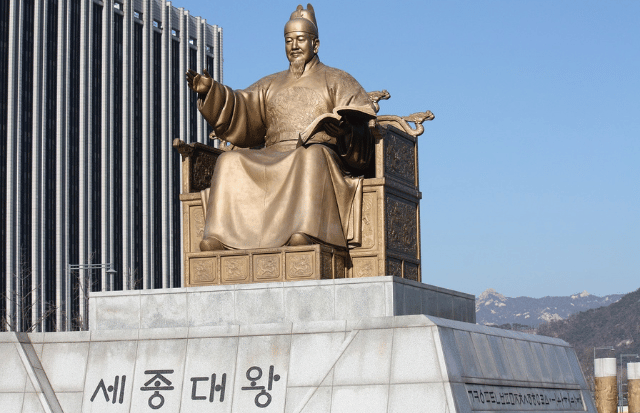October 9th is a celebrated public holiday in South Korea known as Hangeul Day! This holiday commemorates the creation of the Korean alphabet, Hangeul, which was a monumental achievement during the Joseon period which laid the foundations for further development of the Korean language.
Hangeul was introduced to the world by King Sejong in 1446. Prior to its creation, Koreans faced a unique challenge – they had their own spoken language but did not have a writing system that effectively represented their language. Instead, they relied on borrowed Chinese characters, which did not fully capture the nuances, complexities and structure of the Korean language. Furthermore, learning Chinese characters was a formidable task, especially for the common people. It was out of this concern for his people that drove King Sejong to commission the creation Hangeul, a phonetic system of writing, with the aim of making reading and writing more accessible.
Interestingly, when Hangeul was first introduced, it faced resistance from scholars and the upper classes of society. They perceived it as inferior to Chinese characters and believed it to be a script for the less privileged or lower-status individuals. Initially, it was primarily women and those in lower social classes who embraced Hangeul.
Hangeul is a phonetic script, which means that each character represents a distinct sound or phoneme. This is different from logographic scripts like Chinese characters, where each character represents a word or morpheme. The phonetic nature of Hangeul makes it more intuitive for learners because the symbols directly correspond to sounds. For the Korean people who were already speaking the Korean language, being able to learn “alphabets” to write what they were saying phonetically allowed them to gain literacy and start writing within a day of learning the letters!
Also, Hangeul has a relatively small number of characters compared to some other writing systems. There are 14 basic consonants and 10 basic vowels, which can be combined to form more complex characters. This limited set of characters makes it manageable for learners to memorize and use. Consequently, Hangeul gained rapid acceptance and significantly reduced the illiteracy rate in Korea, and this legacy continues to this day.
In 1946, Hangeul Day was designated as a public holiday in Korea to commemorate the creation of this efficient writing system, Hangeul. However, there was a period where it was removed from the list of public holidays by the Korean government in order to boost productivity. With the help and effort of various organizations as well as pressure from public sentiment, Hangeul Day was finally reinstated as a public holiday in 2013, ensuring that Koreans are able to continue to celebrate this crucial aspect of our cultural heritage.
Hangeul Day doesn’t involve many special or traditional events like other holidays such as Chuseok (Mid-Autumn Festival) or Seollal (Lunar New Year). However, having a special day set aside for it gives us a moment to reflect on the privilege of having our own writing system that so effectively represents our language and identity. This day thus serves as a reminder to use the Korean language more frequently, reducing our dependence on borrowed words from other languages. Hangeul Day is often associated with the image of the Great King Sejong (one of the only Kings of Korea to have the appellation “Great” added to his title). He is known to be a generous King who directed a large group of scholars to many literary and scientific inventions that benefited the lives of the Korean people. Our Korean language school (Sejong Korean Language School – Singapore) named ourselves after the Great King because he is regarded as the father of Korean literacy. We also hope that students taking Korean language courses and Korean language lessons in our aptly named Korean language centre will benefit from an environment that alludes to the literary aspirations of our forefathers. Students who learn Korean with us are introduced to King Sejong on their first day of their Beginners Korean courses here, and will be able to appreciate the beauty and efficiency of Hangeul as they learn to read Korean, learn to write Korean, and learn the Korean alphabet.
As a Korean, it is strange trying to imagine a time when we did not possess our own writing system. Hangeul has not only allowed us to communicate effectively but has also played a crucial role in shaping our national identity. If you’re someone interested in learning this remarkable writing system and language, we invite you to join our Korean class at Sejong Korean Language School. We have Korean for beginners and all levels in Singapore. New learners may also be able to consider our SkillsFuture Korean courses if eligible.
Written by: Ms Im Minju, October 2023


